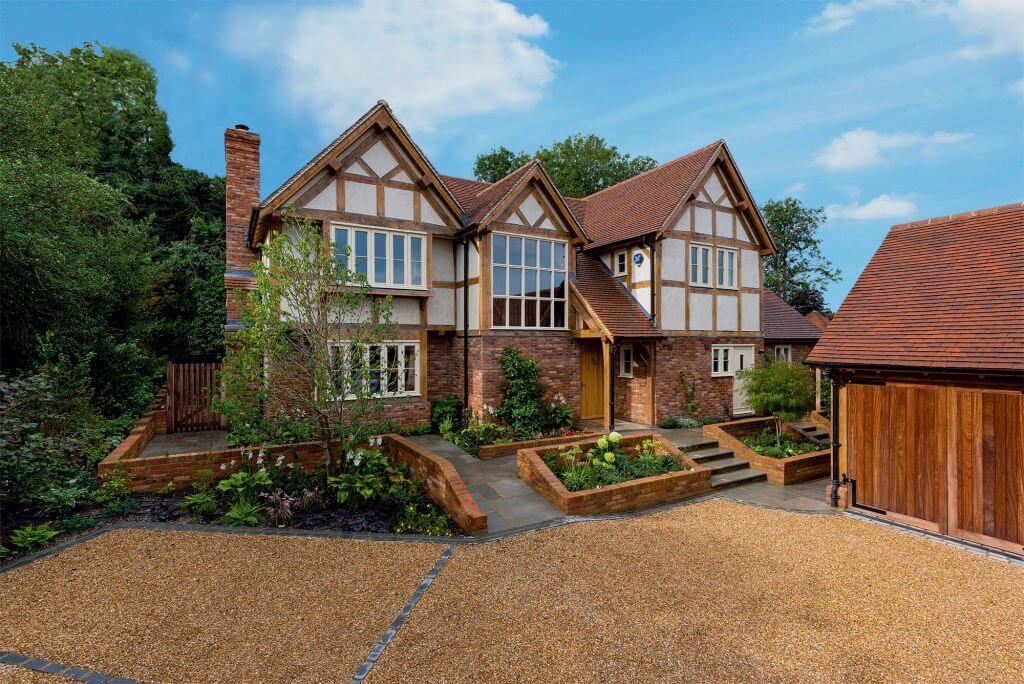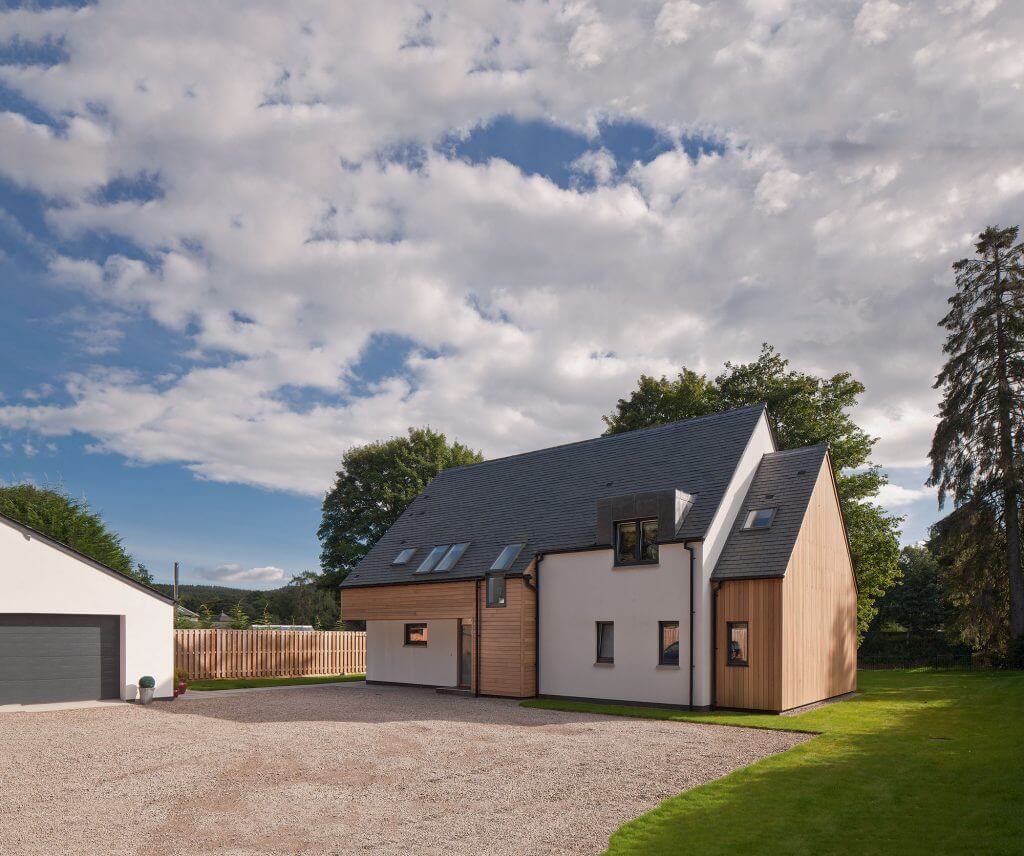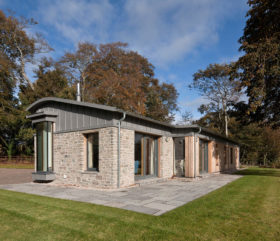

If you’re making a planning application for anything but the most minor alterations to your house, there’s a good chance you’ll encounter an objection or two – and sometimes many more.
These can vary from professionally presented and valid concerns through to the outright nutty – and they can be quite upsetting to those simply wanting to improve their home or create a new one.
So, when and how should you react to planning objections, and what can you do to avoid it in the first place?
When you submit your planning application, it gets published on the council’s weekly list on its website. In addition, your neighbours will be notified and some local authorities will put up a notice outside the property.
Your parish or community council will be informed, and possibly specialists such as the local tree officer, highways authority, ecologist and so on. Exactly who is involved will depend on whether there are any relevant technical issues pertinent to your application.
All of these people are given a period of three weeks in which to comment on your plans. Any remarks that are made during the course of your application should be taken into account by the planning officer dealing with your application (known as the case officer).
It’s essential to monitor your application via the council’s website and carefully read the objections that appear here, so that you can look to address anything that merits consideration.
As well as the organisations and individuals who are directly notified of applications, it’s not unusual for there to be one or two people in a given community who take it upon themselves to express an opinion on any project going through the planning process. This may well be true even if they live some distance away and are unaffected by your project and others they choose to comment on.

Despite tweaking their scheme to suit the demands of a replacement planning officer, the McCurdys’ design for a replacement oak home was twice denied. The couple gained support from the local parish council and ultimately won approval when the case went to planning committee (credit: Jeremy Phillips)
The most serious demurrals are those made by what we might call technical consultees – namely the highway authority, tree officer, conservation officer and other specialists. These parties might not just be raising points against the scheme but also formally recommending that the application should be rejected.
It doesn’t automatically follow, though, that the case officer will agree with a consultee’s recommendation for refusal. So don’t fear the worst, or respond directly to a critic, until you know what the case officer thinks about the issue.
The significance of concerns raised by parish and community councils varies a great deal. Some are properly based on an objective analysis of the application’s merits, coupled with a reasonable understanding of the planning system. These are likely to be taken quite seriously by the case officer.
However, sometimes parish-level opposition is obviously driven by local politics and who knows who – and these are much less likely to be given any credence by the planning officer. You may also encounter parishes that seem to imply they are able to approve or refuse applications, when in fact they are simply consultees.
Neighbour-led objections can come from individuals, amenity groups or residents’ associations. Occasionally, they might secure professional advice from a planning consultant, who might send in a detailed complaint on their behalf.
They may also launch petitions rather than just send in their thoughts. If they’re sufficiently motivated, some individuals will even bombard the case officer handling your application with phone calls and emails, lobby councillors and try to drag in the local MP.
Large numbers of objections can sway some councillors, especially if they sit on planning committees and are mindful of who’s voting to keep them in office (as can complaints from those with friends in high places). As a rule planning officers tend to be less easily influenced, however, and they generally stick to the regulatory issues.

Trees are a common source of problems at the planning stages. The Thomsons had a host of them to deal with on their self-build site, but managed to avoid complications by removing a number of unprotected examples and working around those that were affected by tree preservation orders (credit: David Barbour)
The best way to minimise negative reactions is to be seen to involve your neighbours in the design process. You should also look to keep parish or community council members up to speed with your plans before they receive your formal application. The downside of this approach, however, is that it can give potential objectors additional time to prepare their case against your scheme.
That said, there’s little doubt that fostering good relationships is likely to reduce the chances of receiving damaging objections.
If you get it right, some neighbours may even write in support of your application, which could shift the political balance in your favour. Mass support can drown out a lone opposing point, even if it has some merit.
If your council’s website reveals opposition to your application, be sure to look at this with an open mind to see whether there are any genuine planning concerns.
Be prepared for some wacky ones and don’t let them sidetrack you. I’ve literally encountered complaints that “I walk my dog on that plot and if it’s built he’ll have to go in other people’s gardens” and “with more houses and a bigger population, it’s inevitable that we’ll all start eating each other like rats if this goes ahead.” Clearly, these are the sorts of objection you can safely ignore.
The ones to seriously consider are those that raise specific issues that are relevant to planning, such as a tree being harmed, loss of privacy due to overlooking or worries about a dangerous access or road. It’s not unusual for such concerns to be somewhat exaggerated, but it’s still important that you respond to them.
As a minimum, speak to the case officer. If possible, try to arrange to meet on site so you can point out any flaws in objectors’ arguments. If you can’t get hold of the officer on the phone, be sure to send an email so there’s at least something on record countering the comments.
It’s rare to enjoy any success by directly confronting objectors or trying to persuade them to withdraw their statements. Pressure from you could simply wind them up rather than calm their concerns. A better approach, if possible, is to tweak your plans to address genuine issues; explaining the changes you’ve made to the objector might well satisfy them or even elicit their support.

Jackie and Darren Brooke’s unusual modern self-build could have had neighbours up in arms – but the couple went the extra mile to involve them in the process, inviting local residents to view their plans on a big screen and explaining how it would fit in the design. The scheme was approved without any objections (credit: Colin Poole)
If your application proves contentious, it might end up being decided by the local authority’s planning committee. Most councils allow two people from each side to speak at the meeting for a couple of minutes, as well as a parish or community representative.
Councillors’ willingness to engage with planning applications varies hugely. They are supposed to be seen to be impartial and not pre-judge applications prior to them being decided. Nevertheless, you can attempt to canvass their support (and it’s worth bearing in mind that objectors might well be doing the same thing). A phone call to ask them to come and have a look at your site is generally the best way to try to get their attention.
If you do have to go to committee, take advantage of the opportunity. Write down and rehearse your speech and read it out to ensure you get all your points across in the most effective way. Stick to the planning merits of your scheme and expose any flaws in the objectors’ arguments.
If inaccurate or unfair objections do sway the planning decision against you, take heart that at appeal it’s rare for anything other than objectively assessed planning issues to influence the outcome. This process takes the case away from petty politics and, if your argument is sound, you should eventually succeed in obtaining consent.
Main image: Snug Architects designed this replacement house with a view to improving on overlooking issues. The previous property had lots of side windows, but the new design uses staggered elevations and obscured glazing at the flanks [Photo: Richard Gadsby]


Comments are closed.